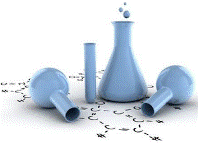Chemical and Biomolecular Engineering, Department of

Department of Chemical and Biomolecular Engineering: Faculty Publications
Date of this Version
2013
Document Type
Article
Citation
PNAS, Published online November 18, 2013, E5039–E5048
Abstract
Human pluripotent stem cells (hPSCs), including human embryonic stem cells and induced pluripotent stem cells, are promising for numerous biomedical applications, such as cell replacement therapies, tissue and whole-organ engineering, and high-throughput pharmacology and toxicology screening. Each of these applications requires large numbers of cells of high quality; however, the scalable expansion and differentiation of hPSCs, especially for clinical utilization, remains a challenge. We report a simple, defined, efficient, scalable, and good manufacturing practice-compatible
3D culture system for hPSC expansion and differentiation. It employs a thermoresponsive hydrogel that combines easy manipulation and completely defined conditions, free of any human- or animal-derived factors, and entailing only recombinant
protein factors. Under an optimized protocol, the 3D system enables long-term, serial expansion of multiple hPSCs lines with a high expansion rate (∼20-fold per 5-d passage, for a 1072-fold expansion over 280 d), yield (∼2.0 × 107 cells per mL of hydrogel), and purity (∼95% Oct4+), even with single-cell inoculation, all of which offer considerable advantages relative to current approaches. Moreover, the system enabled 3D directed differentiation of hPSCs into multiple lineages, including dopaminergic neuron progenitors with a yield of ∼8 × 107 dopaminergic progenitors per mL of hydrogel and ∼80-fold expansion by the end of a 15-d derivation. This versatile system may be useful at numerous scales, from basic biological investigation to clinical development.


Comments
Copyright 2013 National Academy of Sciences USA. Used by permission.